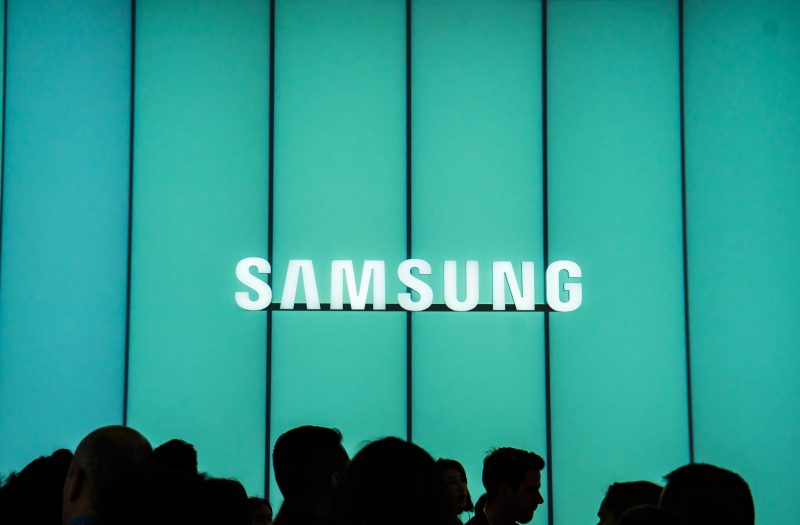 APPS
APPS
 APPS
APPS
 APPS
APPS
Samsung Electronics Co. Ltd. said Wednesday morning in South Korea that its second-quarter operating profit has likely increased by 53% on a year-over-year basis, surpassing analyst estimates.
The increase was thanks to strong demand and high prices for its memory and server chips, which account for the bulk of the company’s revenue. That helped offset a slight decline in its smartphone business.
Samsung reported in a short earnings release that its likely profit for the second quarter came to 12.5 trillion won ($11 billion), beating the analyst consensus of 11.3 trillion won ($10 billion) in profit. The company’s revenue for the period likely rose by 19% from a year ago, to 63 trillion won.
The company did not provide a full breakdown of its revenue, and will only do so when it publishes more detailed figures at the end of the month. It did say that its earnings reflected a one-off gain related to its display business.
However, Reuters reported that the company’s chip division likely saw profit jump by about 20% thanks to the strong prices of flash memory chips and higher demand for consumer electronics and data center server processors.
The price of dynamic random access memory chips, which are used in computer servers, laptops and smartphones, has increased by 27% since the first quarter, according to data from Trendforce Corp. NAND flash chips, which are used in data storage, have seen prices rise by 8.6% in the same period.
“Samsung is benefiting from a very strong semiconductor market where price declines have abated given industry supply challenges,” said Patrick Moorhead of Moor Insights & Strategy. “It’s a seller’s market.”
Reuters said Samsung also saw larger-than-expected shipments of memory chips, helping profits in the chip division dwarf a quarter-over-quarter decline in shipments of its handsets.
Samsung’s chip contract manufacturing and logic chip business also saw improved profits with a resumption of normal operations at the company’s storm-hit factory in Texas, analysts said.
Samsung’s strong quarter mirrors that of another key memory chip supplier, Micron Technology Inc., which last week reported third-quarter revenue of $7.42 billion, up from $5.44 billion one year ago.
Citigroup analyst Peter Lee said in a note that Samsung’s memory business is likely to benefit from price strength for the remainder of the year. “Additionally, we expect Samsung to sustain semiconductor product/technology leadership with 3D architecture and DDR5 in 2022, and maintain its market-leading position,” he added.
Samsung executives will likely be concerned about the decline in smartphone shipments, though. Analysts said the company shipped around 59 million handsets in the quarter, down from 76 million in the first quarter. The division was hurt by slower-than-expected sales of its flagship models. Shipments were also hit by new outbreaks of COVID-19 in regions such as India and Vietnam, plus limited supplies of some mobile processor chips, analysts revealed.
Market watcher Canalys said Samsung was the world’s leading smartphone supplier in the first quarter in terms of shipments in an April report.
“Samsung’s earnings release is one of those right place/right time narratives, where demand for its offerings and the performance of its business units closely mirrors customer and market demand,” said Charles King of Pund-IT Inc. “In this case, Samsung’s memory business, bolstered by its Austin plant getting back up to speed, did especially well. The drop in handset shipments seems to have been offset by a onetime bump in its display business.”
Constellation Research Inc. analyst Holger Mueller told SiliconANGLE the quarter illustrated the strength of the company’s memory chip business and also how its diversification strategy is working.
“Though the handset business tanked by almost 30% due to COVID-19 and supply chain challenges, Samsung saw revenue growth of almost 20% due to the chip business,” Mueller said. “So long as the chip business does well, the smartphone unit can take it easy. But smartphone sales will need to be stronger when chips struggle, and that’s likely coming sooner rather than later.”
Samsung’s share price stayed flat after the report was published, but shares are up 15% for the year to date.
Support our mission to keep content open and free by engaging with theCUBE community. Join theCUBE’s Alumni Trust Network, where technology leaders connect, share intelligence and create opportunities.
Founded by tech visionaries John Furrier and Dave Vellante, SiliconANGLE Media has built a dynamic ecosystem of industry-leading digital media brands that reach 15+ million elite tech professionals. Our new proprietary theCUBE AI Video Cloud is breaking ground in audience interaction, leveraging theCUBEai.com neural network to help technology companies make data-driven decisions and stay at the forefront of industry conversations.